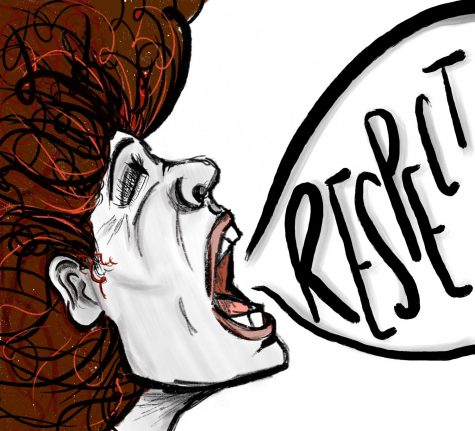OPINION: R-E-S-P-E-C-T, find out what it means to actually do it
September 28, 2019

Nowadays, when people talk about respecting others, it is automatically assumed that it applies only to elders or people of authority. That needs to change.
Having grown up in a fairly traditional household, my parents always pushed the idea that children must respect those around them, and, growing up, I knew that meant every person I encountered deserved respect.
Too often, I hear people disrespectfully speak about those who have different opinions than them. In doing so, however, there is a bitterness and closed-mindedness directed toward others’ thoughts and opinions.
It is important—especially in today’s divisive world—that people learn to respect others, not because of who they are or what they think, but because everyone is human. Navigating life is hard enough as it is, and breeding hate from disrespect on differing opinions is unnecessary and causes more problems in the long run.
In my own life, I’ve had a lot of opportunities to form relationships with people who have different experiences than me—I spent a lot of my childhood in Vietnam, Indonesia and Thailand, places where culture and respect are different from the U.S. You could not walk down the street and hear people gripe about other people, like one can here.
Instead of taking the easy way out, we need to train ourselves to want to understand why people have the opinions they do and where they may stem from.
If after respectful debate there is still a disagreement, then it should be left at that. We do not have to hate each other, we can just live with the fact that we disagree. If you can understand why you disagree with someone, you’ve learned something anyway, and, hopefully, also taught them something about your viewpoint, as well.
We have to understand—our brain is programmed to dislike what it doesn’t understand, but, much like me and math, we can train our brains to be curious instead of closed-off. With a mindset that seeks to understand, rather than rebuke, we may be able to see how we, as humans, essentially want the same things—to live and be understood—no matter our political differences.
Take into account how we think and talk about politicians, especially our current President Donald Trump. It is so common in today’s society to talk about what we hate about a certain person in power with no respect toward them. Bear in mind, there’s a difference between respectfully disagreeing with someone’s policies and blatantly disrespecting their humanity.
This expands to how we speak about politicians in general, because of the nature of their work and how the decisions they make impact a large portion of people. Just because they are politicians does not mean that anyone should demonize or dehumanize them.
When people only speak on what they dislike about someone or their policy stance, it only breeds more disdain among mankind, and makes us less likely to focus on a common goal that we all agree with—making carbs healthy.







